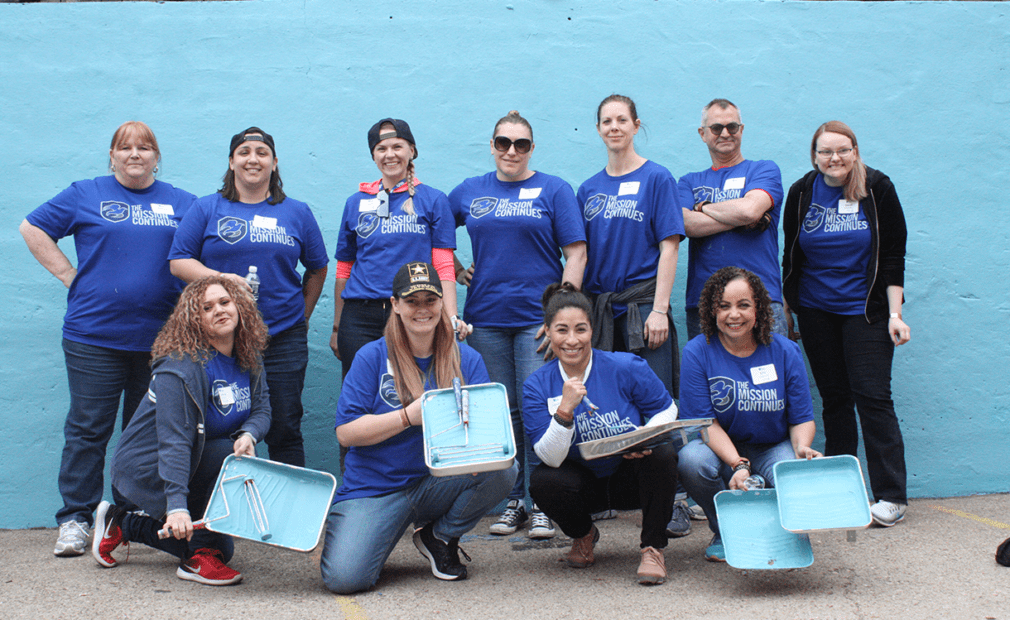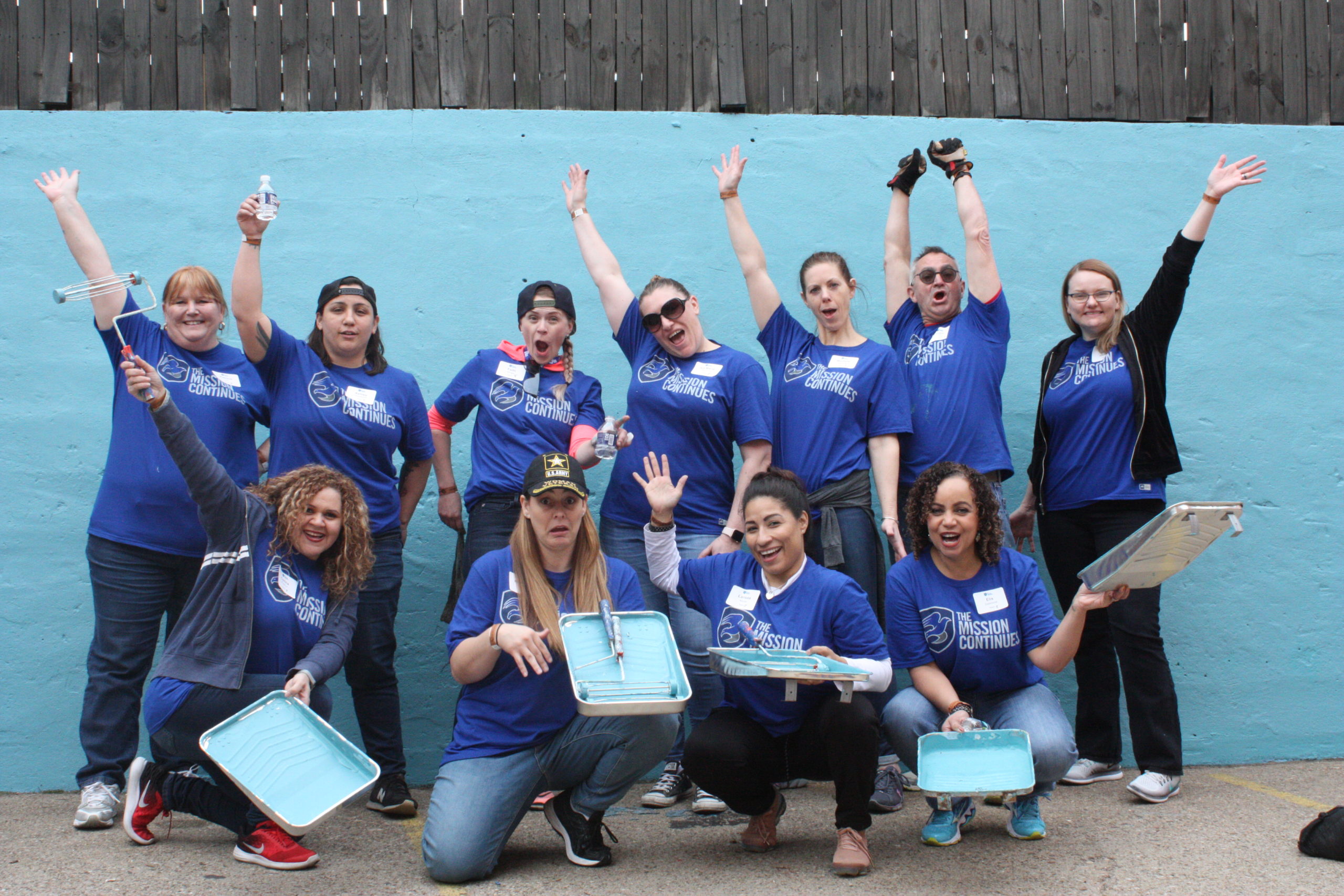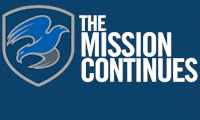Rediscovering a Spirit of Camaraderie
May 4, 2021

Written by Faith Klinger, Women Veteran’s Leadership Program Alumna
Content warnings: sensitive language, sexual assault, and drinking
My proudest training day in 4th Recruit Training Battalion on Parris Island was not the completion of the revered Crucible—a 48-hour gauntlet requiring teamwork and stamina—but when I rallied through pneumonia, pink eye, and a nasty bone spur on my heel to remain in training weeks before, with my platoon, women I had bled and cried next to for the past several days. The morning my Senior Drill Instructor was deciding my fate, I stood on the line with my left eye sealed shut from pink eye gunk and puss. I could feel my heartbeat in my heel, the bone spur pulsing against the stiff leather. I was already winded from simply donning utilities and fixing my hair, but I was not getting dropped. Nuh uh. No ma’am. No sir. I was not leaving my comrades, my coterie, my community.
As she rounded the squad bay to my side (“Starboard side, aye Ma’am!”), my Senior Drill Instructor shouted out for all to respond, “Recruits! What should I do with Ziggler?” (Yes, my last name is Klinger. But no one corrects their Senior Drill Instructor when they have decided Ziggler is your name.) “She still looks sick as a dog. Do we drop her from our platoon? Send her off to the Med platoon of nasty sick bodies?” I gulped. Senior Drill Instructor SSgt Simmons had left the fate of my training to my comrades. Was I liked enough? Without hesitation and in unison, my fellow recruits sounded off, “No, maam! We keep Ziggler!”

And I was kept. My coterie had come through, declaring that I was a valued member of the platoon, a comrade worth keeping. The overwhelming feeling of camaraderie I embraced in this moment got me through the rest of my training, and I proudly claimed the title of United States Marine alongside my community of “The Fewer, The Prouder.”
I ended up serving a little over five years in the Marine Corps. When I separated from the military, I quickly plugged myself into a young and diverse crowd who lived with abandon. The lifestyle, including heavy drinking, was reminiscent of my military comrades. However, this came at the expense of my mental health. I was struggling to assimilate into civilian life, and could not see that for what it was until addiction, trauma, PTSD, death, suicide, and rape led me down years of obstacles and hopelessness.
When I applied to the Women Veterans Leadership Program after the encouragement of my sister Robbie (y’all, she is truly the GOAT), I had low expectations, so when I received an interview, my spine tingled. I felt a physical jolt of joy, and I know you know what I am talking about!

After acceptance, the program sent me to D.C. to sit in a room with wall-to-wall women veterans, I felt an overwhelming spirit of camaraderie, an intense kinship of lived experience, of lived trauma, of lived triumph. I looked around and saw that I was connected to this powerful group of change-makers, this coterie of dreamers, this community of activists. I felt encouraged and empowered for the first time in a long time. I was a part of a community who understood where I had been in body and mind, because they too had walked in my boots.
Community is the most powerful tool for change that we possess. The encouragement rallied behind an individual from their community to propel them to success is invaluable. Shared bonds build a bedrock of binding connection. For me, it is the community I found at the Women’s Veteran Leadership Program that has uplifted me in tangible ways—and is leading me on a personal path to success.
 You are successfully logged in.
You are successfully logged in.





